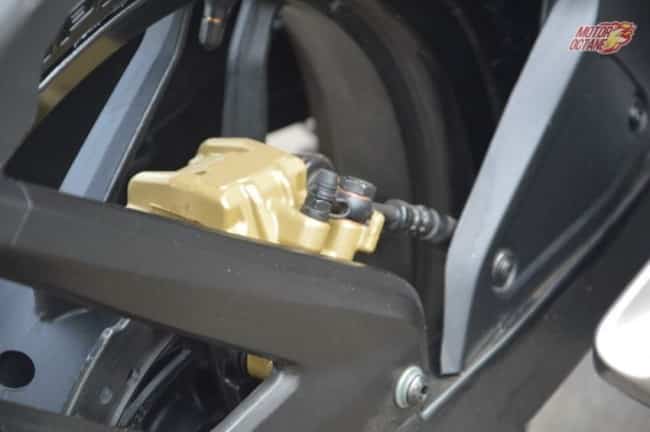Bosch has developed cost-effective ABS for Pulsar RS200

The Pulsar RS200 is the first Bajaj to get ABS, and this has been developed by Bosch. The shorter braking distance, fewer accidents, enhanced safety are the advantages of having ABS. With front-wheel ABS, Bosch is able to offer a cost-effective and customized motorcycle safety solution for all markets worldwide. The new system will be an optional feature in the brand new Pulsar RS 200 made by the Indian manufacturer Bajaj.
Bosch was looking at developing cost-effective ABS for bikes for the last few years and Bajaj is one of the first to use it.
In India and other emerging markets in Asia and South America, motorcycles from the lower price segment are an important means of transportation. In most cases, only the front wheel of the motorcycles in these markets − including those with up to 500 cc − have hydraulic brakes for cost reasons. In contrast, the rear wheel is fitted with a mechanical cable brake.
Front-wheel ABS addresses this technical configuration. Using a hydraulic channel, the Bosch system controls the front wheel and prevents it from locking up during braking situations. Front-wheel ABS represents the starter version of the current ninth generation of motorcycle ABS.
The variant ABS base is geared toward motorcycles with hydraulic brakes on the front and rear wheels. The next step up is ABS plus with an integrated pressure sensor. It lives up to the demands of high-performance two-wheelers. At the top of the range is ABS enhanced.
The development of motorcycle safety systems has not come to a standstill, however. With Motorcycle Stability Control MSC, Bosch has already developed a type of ESP for motorcycles.
The system recognizes the lean angle of a two-wheeler and instantaneously adapts the electronic control interventions during braking and accelerating to the current driving situation.


Comments